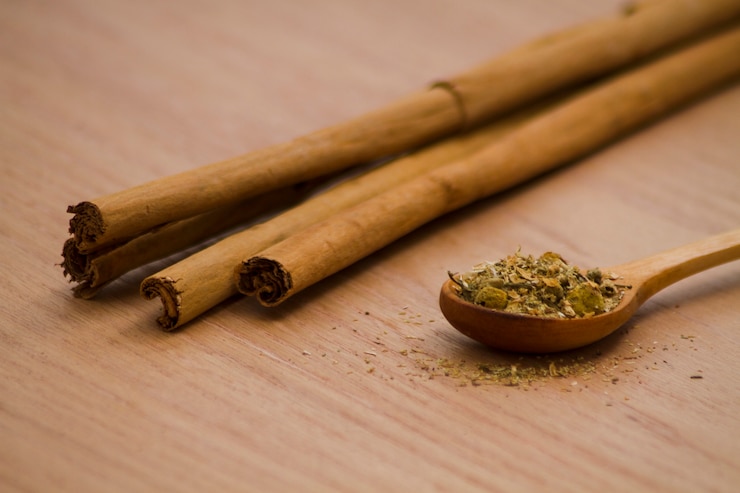Ask Ayurvedic doctor a question and get a consultation online on the problem of your concern in a free or paid mode. More than 2,000 experienced doctors work and wait for your questions on our site and help users to solve their health problems every day.
Best Ayurvedic Medicine for Weight Gain: Comprehensive Guide

Introduction: The Rising Interest in Ayurvedic Weight Gain Solutions
Did you know that an estimated 462 million people worldwide are underweight, according to the World Health Organization (WHO)? While much attention is focused on weight loss, there is a sizeable population striving to put on healthy weight. In recent years, Ayurveda has gained popularity for offering a holistic approach to health and wellness, including Ayurvedic remedies for weight gain. These time-tested herbal combinations, dietary suggestions, and lifestyle practices aim to balance the body’s internal systems to facilitate healthy weight management.
In this article, we explore the best Ayurvedic medicine for weight gain, dissect current scientific research on Ayurvedic principles, and present an evidence-based perspective on how these herbal formulations might help you meet your nutritional goals. Along the way, we’ll cite peer-reviewed studies, highlight standard medical guidelines, and share practical tips for safe and effective use. Please note that this information is for educational purposes only and should not replace professional medical advice. Always consult a qualified healthcare provider before making any significant changes to your health regimen.
Don't wait or self medicate. Start chat with Doctor NOW
Table of Contents
-
Understanding Ayurveda and Weight Gain
-
Common Ayurvedic Herbs and Formulations
-
Evidence from Research: Efficacy and Safety
-
Practical Tips for Using Ayurvedic Remedies
-
Dietary and Lifestyle Recommendations
-
Frequently Asked Questions (FAQ)
-
Conclusion and Call to Action
1. Understanding Ayurveda and Weight Gain
1.1 What Is Ayurveda?
Ayurveda is an ancient system of medicine with roots in India, dating back over 5,000 years. It focuses on balancing the three fundamental bodily energies, or “doshas”—Vata, Pitta, and Kapha—to maintain overall health. In Ayurvedic philosophy, weight gain or loss can be influenced by an imbalance in these doshas, dietary habits, metabolic processes, and stress levels.
1.2 Why Consider Ayurvedic Approaches for Weight Gain?
-
Holistic View: Ayurveda treats the body as an interconnected system. Instead of solely targeting symptoms (e.g., lack of appetite), it emphasizes restoring balance, which can lead to more sustainable results.
-
Minimal Side Effects: Many Ayurvedic formulations use herbs and natural substances, theoretically reducing the risk of severe side effects when used correctly.
-
Personalized Medicine: Ayurvedic practitioners tailor treatments to an individual’s unique constitution (prakriti), lifestyle, and existing health conditions.
According to a review published in the Journal of Ayurveda and Integrative Medicine (2015), certain Ayurvedic interventions have shown potential in managing body weight, though more robust clinical trials are still needed for definitive conclusions.
2. Common Ayurvedic Herbs and Formulations
2.1 Ashwagandha (Withania somnifera)
Often touted as one of the best Ayurvedic medicine for weight gain, Ashwagandha is an adaptogenic herb used to modulate stress response. Elevated stress levels can contribute to a poor appetite and weight loss.
-
Key Components: Withanolides, alkaloids, and lactones.
-
Potential Benefits: Research (PubMed ID: 28471731) suggests that Ashwagandha may help in improving muscle mass and reducing fatigue.
2.2 Shatavari (Asparagus racemosus)
Shatavari is commonly recommended for those looking to increase mass and improve digestion. Traditionally used for female reproductive health, it also contains compounds that can support the digestive system.
-
Key Components: Steroidal saponins, which may help balance hormonal levels.
-
Potential Benefits: May improve nutrient absorption and appetite.
2.3 Yashtimadhu (Glycyrrhiza glabra)
Popularly known as licorice root, Yashtimadhu supports the mucosal lining of the stomach, potentially aiding digestion and nutrient assimilation.
-
Key Components: Glycyrrhizin, flavonoids, and isoflavones.
-
Potential Benefits: May have anti-inflammatory and soothing effects on the gastrointestinal tract, which could contribute to better nutrient absorption.
2.4 Chyawanprash
A classical Ayurvedic jam, Chyawanprash is prepared using a blend of herbs, amla (Indian gooseberry), sesame oil, ghee, and honey. It is widely used as a general health tonic.
-
Key Components: Amla (rich in Vitamin C), various herbs, ghee, and honey.
-
Potential Benefits: Strengthens immunity, improves digestion, and can support healthy weight gain when taken regularly.
2.5 Draksharishta and Other Herbal Tonics
Draksharishta is a fermented Ayurvedic tonic primarily made from grapes, known to support digestion and boost appetite. Other herbal tonics like Ashwagandharishta or Balarishta may also be recommended, depending on individual needs.
-
Key Components: Fermented grape juice, spices, and herbs that may help stimulate digestion.
-
Potential Benefits: Enhanced appetite, improved gut health, and better absorption of nutrients.
3. Evidence from Research: Efficacy and Safety
While anecdotal and historical evidence strongly supports the use of Ayurvedic remedies, modern scientific validation is still evolving. Some key points:
-
Ashwagandha Studies: In a randomized controlled trial (RCT) published in PLoS One (2015), participants taking Ashwagandha root extract experienced an increase in muscle mass and reduction in exercise-induced muscle damage, suggesting potential for healthy weight gain.
-
Digestive Support: Herbs like Shatavari and Yashtimadhu have shown promise in small-scale studies for improving digestion and overall gut health, which are crucial for weight gain.
-
Safety Profile: Generally considered safe when used in recommended doses, Ayurvedic herbs can still interact with medications or cause side effects. For instance, excessive licorice (Yashtimadhu) intake may lead to elevated blood pressure in some individuals (National Institutes of Health, 2020).
Healthcare providers often stress the importance of consulting a qualified Ayurvedic practitioner and a medical doctor before beginning any herbal supplementation, especially for individuals with pre-existing conditions or those taking other medications.
4. Practical Tips for Using Ayurvedic Remedies
-
Consult a Professional: Before you begin any Ayurvedic regimen, consult with a certified Ayurvedic practitioner for a personalized plan.
-
Start Slow: Introduce one herb or formulation at a time to monitor your body’s reaction.
-
Check Labels: Look for reputable manufacturers and verify that products are tested for purity and quality.
-
Combine with a Balanced Diet: Even the best Ayurvedic medicine for weight gain will not work if your overall calorie intake is inadequate. Ensure you consume balanced meals with sufficient proteins, carbohydrates, and healthy fats.
-
Stay Hydrated: Proper hydration is essential for digestion and nutrient absorption. Aim for 8–10 glasses of water per day, or as advised by your healthcare provider.
-
Follow Recommended Dosages: Overuse of herbs can lead to imbalances or interactions with other medications.
5. Dietary and Lifestyle Recommendations
5.1 Diet
-
Incorporate High-Calorie Whole Foods: Nuts, seeds, avocados, whole grains, and dairy products (if tolerated) provide nutrient-dense calories.
-
Eat Small, Frequent Meals: Spreading meals throughout the day can help boost calorie intake without overwhelming your digestive system.
-
Include Herbal Spices: Spices like cumin, fennel, and ginger can aid digestion and improve nutrient absorption.
-
Avoid Junk Calories: Focus on nutrient-rich foods rather than sugary beverages or processed snacks.
5.2 Lifestyle
-
Manage Stress: Elevated cortisol levels can interfere with healthy weight gain. Techniques like yoga, meditation, and pranayama (breathing exercises) are commonly recommended in Ayurveda for stress relief.
-
Regular Sleep Schedule: Aim for 7–9 hours of quality sleep each night. Adequate rest is critical for muscle recovery and overall hormonal balance.
-
Physical Activity: While excessive cardio might be counterproductive for weight gain, moderate strength training can help build muscle mass.
These recommendations align with general guidelines from recognized health organizations, such as the National Health Service (NHS) and the World Health Organization (WHO), which emphasize balanced diets, regular exercise, and adequate rest for overall well-being.
6. Frequently Asked Questions (FAQ)
Q1: What is the best Ayurvedic medicine for weight gain?
A1: There is no single “best” solution that works for everyone, as Ayurveda relies on personalized treatment. However, herbs like Ashwagandha, Shatavari, and formulas such as Chyawanprash are commonly used for supporting healthy weight gain.
Q2: Are Ayurvedic remedies safe for long-term use?
A2: Many Ayurvedic remedies can be safe for extended periods when taken under the guidance of a qualified practitioner. Always follow dosage recommendations and consult your healthcare provider, especially if you take other medications or have chronic conditions.
Q3: How quickly can I expect results?
A3: Results vary depending on individual factors like metabolism, lifestyle, and diet. Some people notice changes within a few weeks, while others may take several months to see significant improvement.
Q4: Can I use Ayurvedic herbs with conventional supplements?
A4: While it’s often possible to combine Ayurvedic and Western supplements, it’s crucial to consult both an Ayurvedic practitioner and a medical doctor to avoid potential interactions or side effects.
Q5: Do I need to change my diet when using Ayurvedic remedies?
A5: Yes. A balanced, nutritious diet works in tandem with Ayurvedic remedies to deliver the best results. Relying solely on herbs without adequate calories, proteins, and nutrients is unlikely to promote healthy weight gain.
7. Conclusion and Call to Action
Ayurveda provides a holistic framework for achieving and maintaining a healthy weight, drawing upon centuries of empirical wisdom and an ever-growing body of scientific research. While Ashwagandha, Shatavari, Yashtimadhu, and other herbal formulations are among the best Ayurvedic medicine for weight gain, their effectiveness is maximized when integrated with a balanced diet, stress management techniques, and regular physical activity.
Nevertheless, clinical evidence supporting these herbs continues to evolve, and it’s essential to adopt a cautious, research-informed approach. Always consult qualified healthcare professionals for personalized advice, particularly if you have underlying medical conditions or are taking other medications.
If you found this guide helpful, please share it with others who may benefit, leave a comment below with your thoughts or experiences, and subscribe for more in-depth articles on holistic health and wellness. Empower yourself with the best of traditional wisdom and modern science to reach your weight goals safely and sustainably.
Disclaimer
This article is for informational purposes only and does not substitute professional medical advice. Always consult with a healthcare provider before making any changes to your treatment plan or regimen.
References and Suggested Reading
-
Journal of Ayurveda and Integrative Medicine (2015). [Available on PubMed]
-
National Institutes of Health (2020). “Herbs at a Glance.”
-
PLoS One (2015). [Available on PubMed]
-
World Health Organization. “Malnutrition: Key Facts.”
This article is provided in the spirit of sharing credible and balanced information. For individualized guidance, please seek professional consultation.




